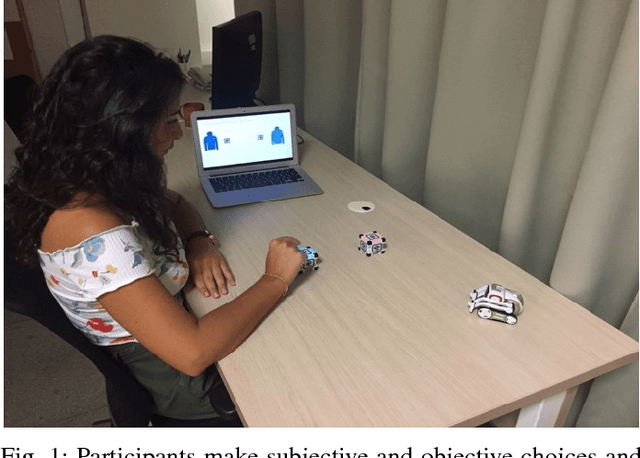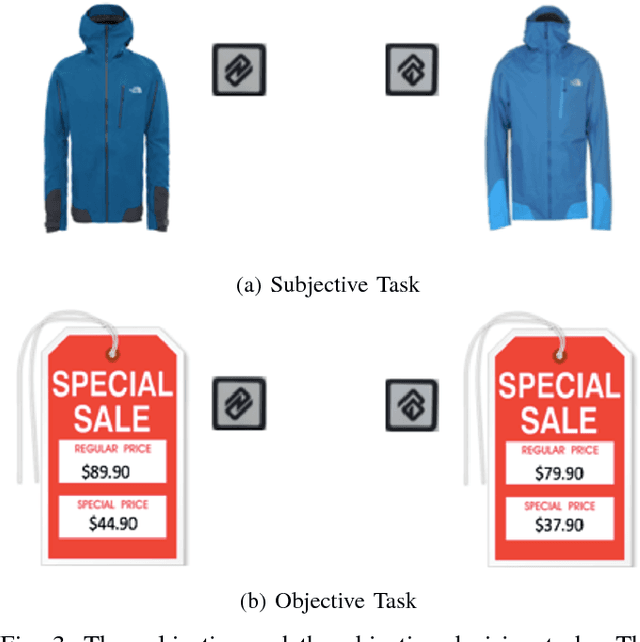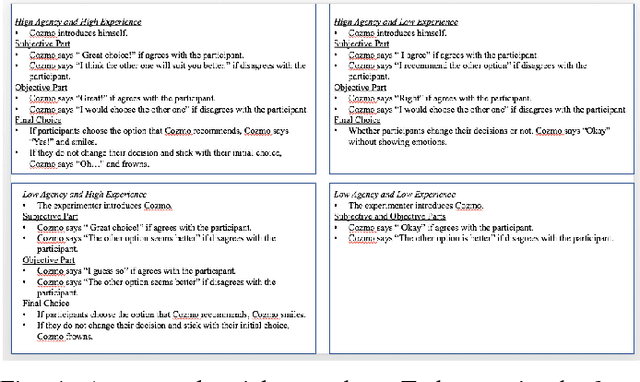Sahibzada Omar
Mind in the Machine: Perceived Minds Induce Decision Change
Nov 02, 2018



Abstract:Recent research on human robot interaction explored whether people's tendency to conform to others extends to artificial agents (Hertz & Wiese, 2016). However, little is known about to what extent perception of a robot as having a mind affects people's decisions. Grounded on the theory of mind perception, the current study proposes that artificial agents can induce decision change to the extent in which individuals perceive them as having minds. By varying the degree to which robots expressed ability to act (agency) or feel (experience), we specifically investigated the underlying mechanisms of mind attribution to robots and social influence. Our results show an interactive effect of perceived experience and perceived agency on social influence induced by artificial agents. The findings provide preliminary insights regarding autonomous robots' influence on individuals' decisions and form a basis for understanding the underlying dynamics of decision making with robots.
 Add to Chrome
Add to Chrome Add to Firefox
Add to Firefox Add to Edge
Add to Edge